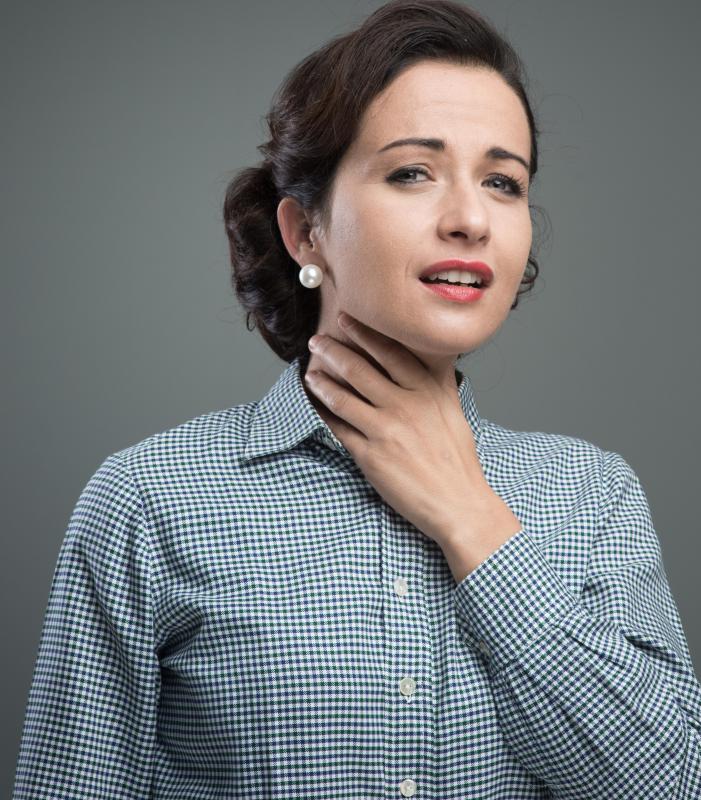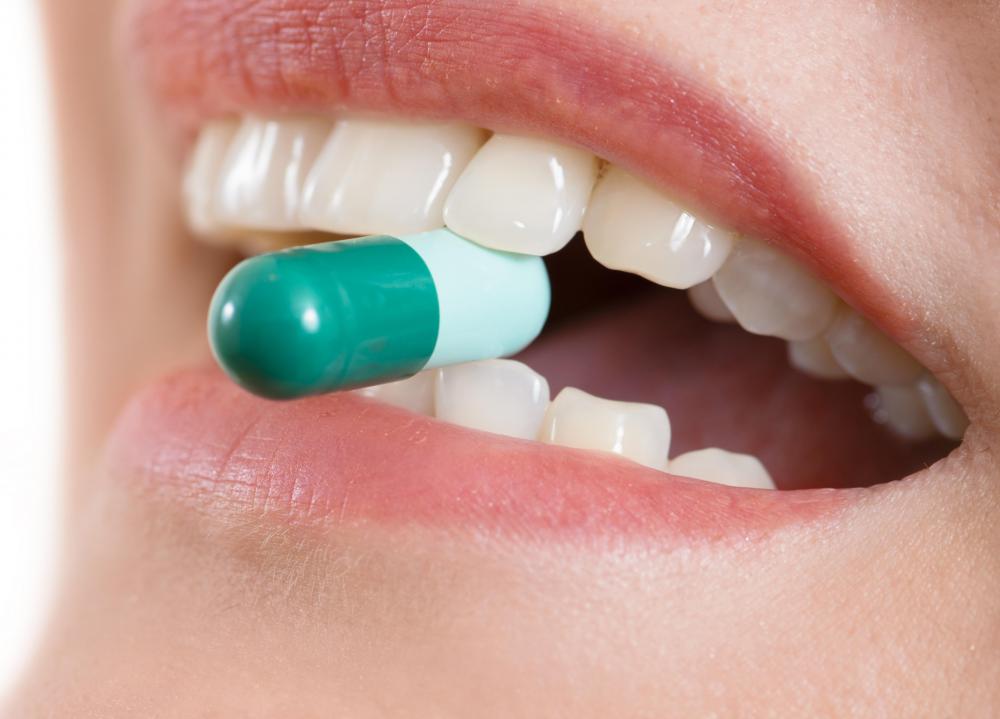At TheHealthBoard, we're committed to delivering accurate, trustworthy information. Our expert-authored content is rigorously fact-checked and sourced from credible authorities. Discover how we uphold the highest standards in providing you with reliable knowledge.
What is Pericoronitis?
Pericoronitis is a medical condition that occurs when a person's wisdom teeth become impacted or just start to protrude through the gums. A tooth that is beginning to surface creates an opening or a small flap in the gum tissue, which often becomes irritated. Bacteria can get caught in the opening and cause a serious infection. Many people experience pain and swelling in and around their mouths, which can make it difficult to swallow and speak. Dentists may clean the infected area, prescribe pain medication or antibiotics, or suggest that patients see an oral surgeon to have their wisdom teeth removed.
People usually get their wisdom teeth around their late teens or early twenties. In many cases, the teeth grow in crooked or put strain on the other molars in the back of the mouth, leading to a significant amount of discomfort. Even wisdom teeth that begin to emerge correctly can be painful, as they must break through sensitive gum tissue. In the case of pericoronitis, open gum tissue becomes infected due to pieces of food, plaque, or other bacteria getting trapped in the cavity created by a tooth.

The symptoms of pericoronitis include pain in the mouth and jaw and swelling in the infected area, tongue, and throat. Many individuals have difficulty opening their mouths, chewing and swallowing food, and speaking. A person experiencing pericoronitis symptoms should seek the guidance of a licensed dentist immediately to form a proper diagnosis and appropriately treat the condition.

A dentist will usually conduct a physical examination and take x-rays to determine the severity of pericoronitis. When a person's wisdom teeth are growing correctly, the dentist might prescribe an antibiotic or painkiller as well as thoroughly clean out the infected gum tissue. In cases where wisdom teeth are impacted or putting strain on other teeth, the dentist might make a referral to an oral surgeon who can remove the problem teeth before they create more severe problems. The surgical procedure is fairly routine, and most surgeons can successfully cut out wisdom teeth and infected tissue in one appointment.

After a procedure, the pain from infection and pressure on the other teeth is immediately relieved. The surgeon will usually sew up the gum tissue and prescribe an antibiotic to prevent future infections. He or she may suggest a temporary diet of soft foods and liquids until the patient's mouth has time to recover. The healing time after pericoronitis surgery varies, but most people are able to fully recover in one to two weeks.
AS FEATURED ON:
AS FEATURED ON:

















Discussion Comments
@dfoster85 - I actually had pericoronitis when I was 19. Apparently, it's actually quite rare in people past their mid-twenties, so I wouldn't worry too much about your mom. (Although my father never got his pulled, either, and he said that every few years he feels sore like they're trying to break through, so maybe he's at risk then.)
The idea is that problems can happen when the tooth is just trying to come in, which is generally late teens or early twenties. My dentist didn't want me to have surgery while I was infected because he said that could cause the infection to spread, so he treated me with antibiotic. I went to the oral surgeon to have all four wisdom teeth out after the infection cleared up.
The infection was pretty painful, so my advice to people is always if you know you're going to need them out eventually, just do it! Don't dilly-dally about it.
My dentist said that it would be best to get my wisdom teeth out early to avoid risks like having to treat pericoronitis. (Mine happened to be impacted.) My mother is stubborn and refused to ever have hers out, so she's at risk for this. I hate to think of this affecting her when she gets older and weaker! But now she's already in her late 50s and having her impacted wisdom teeth out would be no picnic in itself.
Wisdom teeth seem like a giant evolutionary fail. My husband's wisdom teeth came in properly, but he *still* had to have them removed because one had a cavity that the dentist just couldn't reach. There was no rush because it wasn't particularly painful, but it would just have gotten worse and worse.
Post your comments